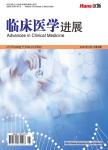干扰素治疗CHB所致外周血细胞减少的中西医研究进展
Research Progress of Interferon in Treatment of Peripheral Blood Cytopenia Induced by CHB in Chinese and Western Medicine作者机构:云南中医药大学第一临床医学院云南 昆明 昆明市中医院脾胃肝病科云南 昆明 云南省第一人民医院感染科云南 昆明 昆明理工大学医学院云南 昆明
出 版 物:《临床医学进展》 (Advances in Clinical Medicine)
年 卷 期:2024年第14卷第8期
页 面:416-421页
学科分类:1004[医学-公共卫生与预防医学(可授医学、理学学位)] 100401[医学-流行病与卫生统计学] 10[医学]
摘 要:当乙肝病毒(HBV)的感染持续超过六个月时,就形成了慢性乙型肝炎(CHB)。它是肝脏纤维化的首要成因。CHB迁延难愈,如果得不到及时有效的治疗,则可进展为肝硬化、肝功能衰竭甚至肝癌。当前在慢性乙型肝炎(CHB)的治疗领域,干扰素(即IFN-α)扮演着至关重要的作用,但其治疗通常伴有多种副作用,大多数副作用相对较轻,并且一旦停止使用干扰素,这些副作用将会逐步消退。而干扰素导致的外周血细胞减少是一种常见的副作用,这直接关系到患者的治疗效果以及能否完成整个疗程。中医药在治疗干扰素引发的白细胞减少中具有显著优势。本文就近年中医药干预干扰素治疗CHB发生的白细胞减少及处理办法的相关研究进行综述。When infection with the hepatitis B virus (HBV) persists for more than six months, chronic hepatitis B (CHB) forms. It is the leading cause of liver fibrosis. Prolonged CHB is difficult to cure, if not timely and effective treatment, it can progress to cirrhosis, liver failure and even liver cancer. Interferon (IFN-α) currently plays a vital role in the treatment of chronic hepatitis B (CHB), but its treatment is usually associated with a variety of side effects, most of which are relatively mild, and these side effects will gradually resolve once interferon is discontinued. Interferon-induced leukopenia is a common side effect, which is directly related to the patient’s treatment effect and whether the whole course of treatment can be completed. Traditional Chinese medicine has significant advantages in the treatment of interferon-induced leukopenia. This article reviews the recent studies on leukopenia and treatment methods of interferon in the treatment of CHB by Chinese medicine.



